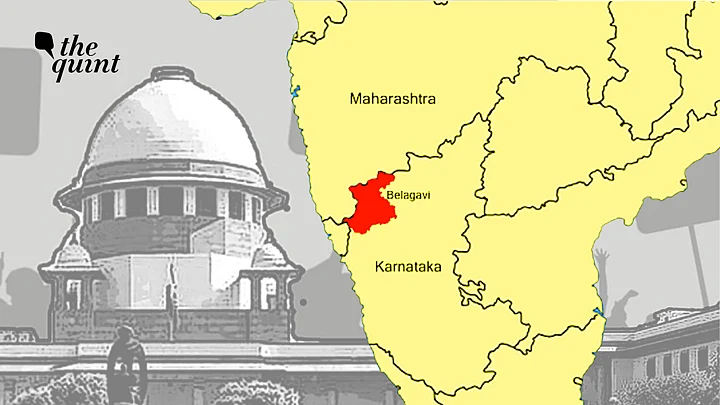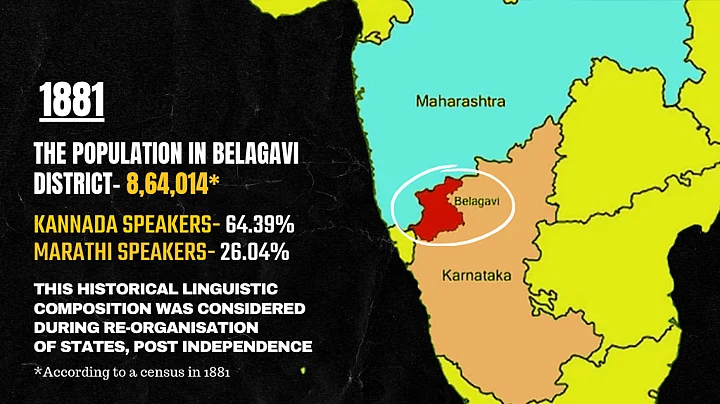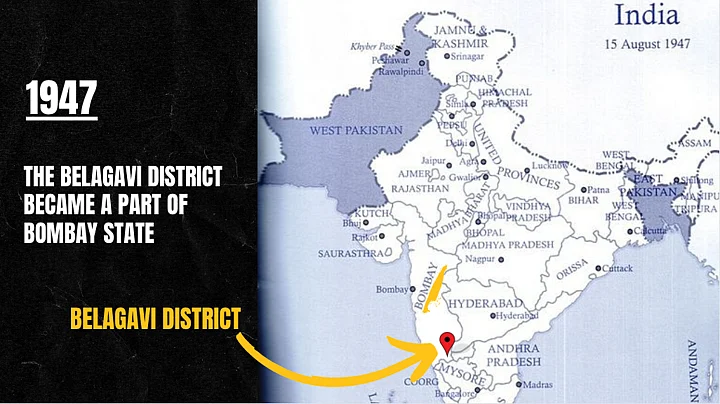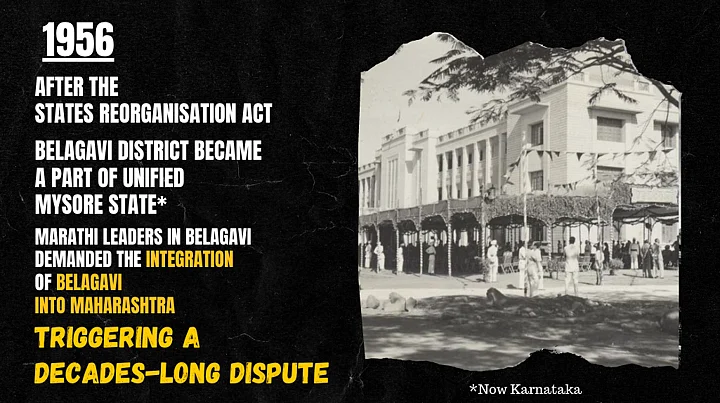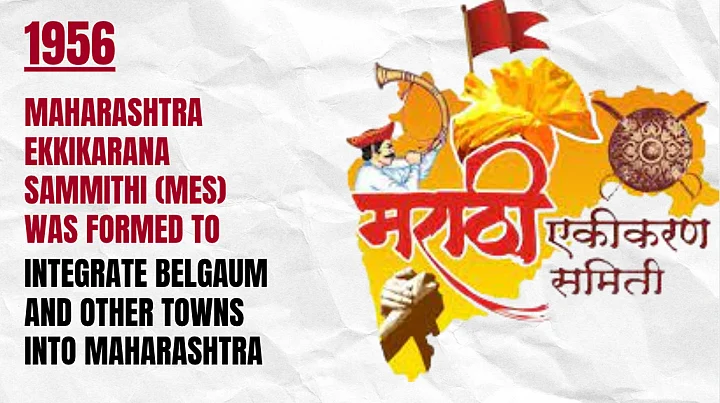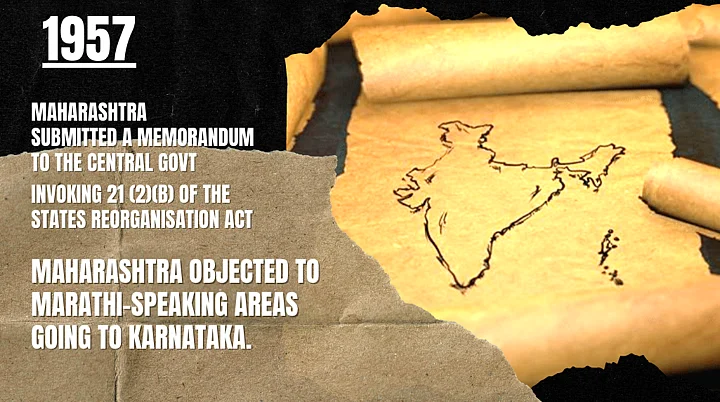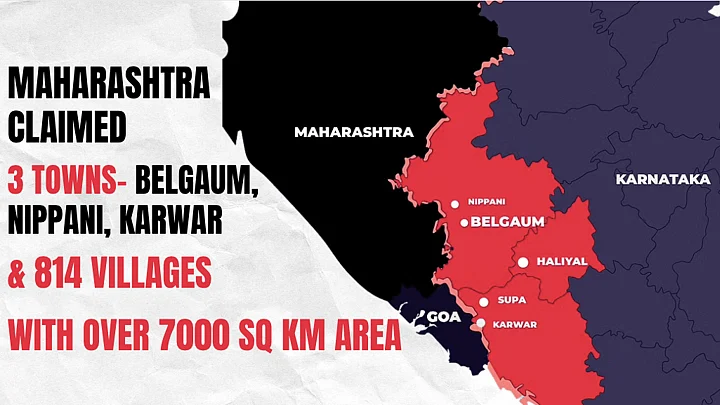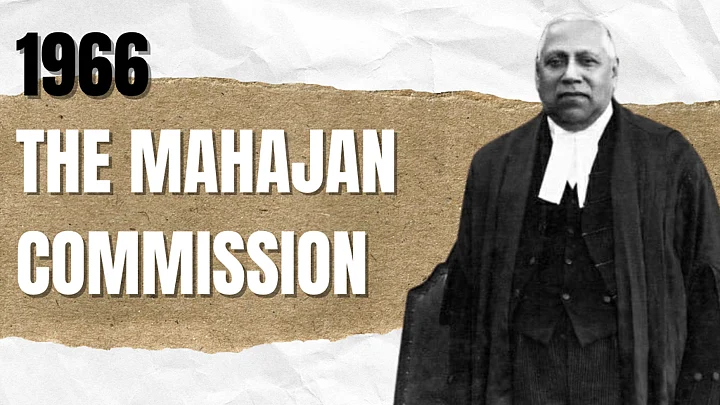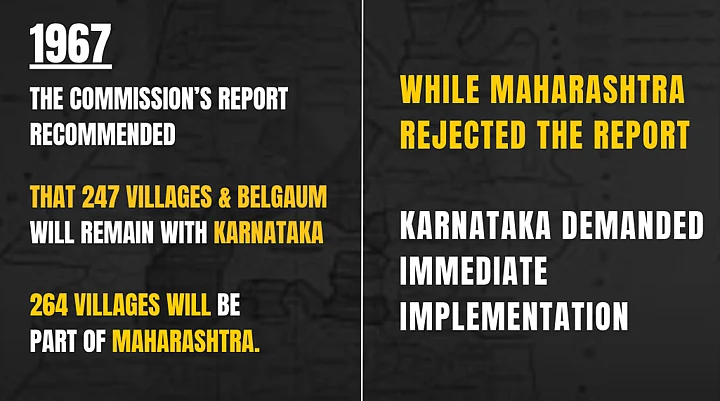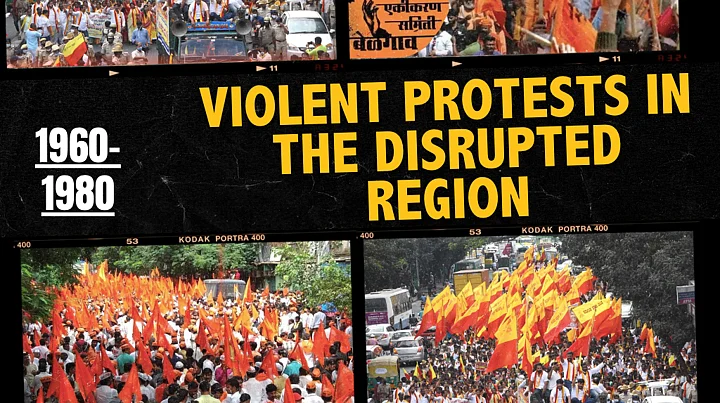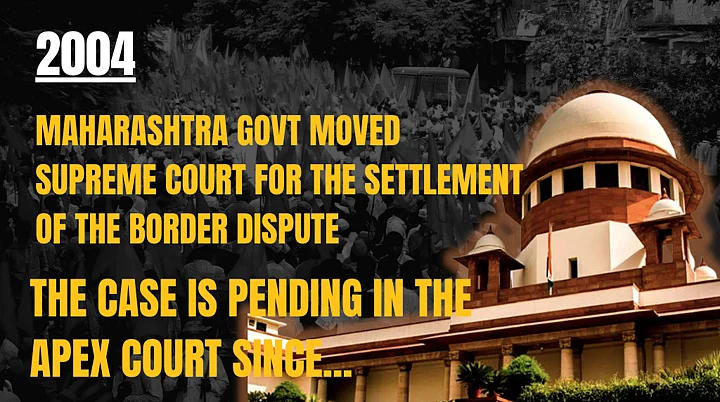Headline 1: Not an inch of land will be given away, says Maharashtra CM Eknath Shinde
Headline 2: 'Karnataka CM's move to lay a claim on Jath tehsil in Maharashtra's Sangli sparks political controversy'
Headline 2: '40 Maharashtra villages seek to merge with Karnataka'
If one Googles the Maharashtra-Karnataka border dispute, several such headlines pop-up from the last few weeks. The dispute has lasted for 66 years, ever since the Mysore state (now Karnataka) was carved out from the Bombay state in 1956.
With no headway politically, Maharashtra took the matter to the Supreme Court in 2004, with the case not having moved forward since. Following recent verbal spats between chief ministers Eknath Shinde and Basavaraj Bommai as the dispute resurged, Home Minister Amit Shah stepped in and asked both states to not pursue the matter till the "Supreme Court resolves it."
Shah might have put a lid on the headlines that the two Bharatiya Janata Party (BJP)-ruled states have been making, but his 'solution' is far rom resolving the dispute and brings forth certain questions:
Can the Supreme Court really 'solve' the issue? Does it have jurisdiction to solve a border dispute between two states?
If yes, what will it have to take into consideration?
What do the locals on both sides of the border and the 'disputed' areas like Belagavi, Nipani, and Karwar want? Is the matter legal, or is it more socio-cultural?
First, a Quick Overview
Before getting into the crucial questions, click here for an overview of the 66-year-old dispute.
While it kept cropping up through the decades, there are three key factors that have led to the recent escalation:
Eknath Shinde forming a committee of three ministers to pursue the dispute legally.
Bommai, in retaliation, staking claim in Kannada-majority villages in Maharashtra's Jath region in a bid to assert regional dominance ahead of the Karnataka Assembly elections
Opposition parties in both states upping the ante against the respective BJP+ governments over claims and counter-claims by both sides.
To Intervene or Not to Intervene?
Gunwant Patil (56), an activist, author, and a functionary of the Maharashtra Ekikaran Samiti (MES) that advocates for three regions to be incorporated into Maharashtra, said that the interests of the Marathi-speaking people in these regions need to be at the core of the dispute.
Formed in 1948, the MES has been demanding to integrate nearly 864 villages of Karnataka, apart from Belagavi, Nipani, Khanapur, and Karwar, with Maharashtra and also contesting elections on the issue.
"If the SC takes into consideration the documentation work filed during he division of states, the current ground situation, the language of the majority, and the culture, they will have to favour us," he said.
Meanwhile, Ashok Chandagarhi, President of the Belagavi District Kannada Sanghatna Kriti Samiti, said that the Supreme Court has no jurisdiction to decide on a border dispute.
Claiming that Marathi-speaking people in these regions are not the majority anymore, Chandagarhi said: "The SC hearing should be on the basis of jurisdiction first. Under Article 3 of the Constitution, only the Parliament has the power to decide on state borders or transfer the areas. They (Maharashtra) have challenged the decision 50 years later. Our stand is that the Supreme Court has no jurisdiction in the matter, the plea is not maintainable, and it should be rejected."
So, Does the Supreme Court Have the Power to Decide?
"Yes, it does," said advocate Shahrukh Ali, a legal expert on border disputes.
"We have a specific provision in the Constitution, which is Article 131, that allows a state to file a case against another state. The state (dragging another state to court) needs to show that there is a dispute and it has a legal right which is being infringed upon by virtue of this particular controversy or is being affected by the other states action," he said.
"Then, if the legality of the matter is established, in the eventuality of it, who has the power to decide where the border has to be drawn? The answer to that is — the Parliament. Article 3 of the Constitution specifically reserves all questions relating to such disputes and gives the Parliament the power to decide on them using suitable permutations and combinations," he said.
After the Mysore state was carved out of Bombay state in 1956, the State Reorganisation Act (formed as per the Fazal Ali committee) was followed that carves states out on linguistic lines. In 1966, the Mahajan committee was formed to look into Maharashtra's claims of several Marathi-majority districts and villages going to Karnataka, the report of which was published a year later and was rejected by Maharashtra.
"So, the only limited query would be whether whether the division has been fair or reasonable, or, in other words, whether the division has been erroneous or arbitrary. They might say that you followed a particular parameter for other states, but for Maharashtra and Karnataka you followed a completely arbitrary or unreasonable yardstick to make the division," Ali said.
To sum it up, Ali said:
The Supreme Court has the power to determine disputes in between states, in which the complainant state needs to show what legal rights it has in in the dispute which it wants SC to canvas.
The Parliament has the power under Article 3 to carve out states, draw borders, and exchange regions between two states.
The examination by the court is circumspect and limited. When it finds that a certain lawmaking body has the power to exercise that law — which in this case is the Parliament — it does not enter into areas which concern policy.
The court's limited examination will be whether the exercise of that lawmaking body (Parliament's powers under SRA) has been perverse, arbitrary or irrational. In this case, the examination will require the Supreme Court and the different sides to establish that the Fazal committee report, the SRA, and the Mahajan committee report weigh either for or against Maharashtra's claims.
So, Can the Issue Be Entirely Resolved Legally?
Senior journalist from Belagavi, Prasad Prabhu said that the issue would not have continued to crop up if Marathi-speaking people in these regions were shown more respect by Karnataka.
"As per the existing laws in the country, a place like Belagavi should have been kept bilingual in nature. But most Marathi speaking people feel that Kannada is being imposed on them. They are often subjected to comments like "Please speak in Kannada, not in Marathi," or "You live in Karnataka and fend for yourselves here". Even the minority commission has rules against the same. They even changed the name from Belgaum to Belagavi and made a Vidhan Soudha here. There are some issues being fanned only for the sake of politics," Prabhu said.
Patil too alleged forceful domination of Kannada on Marathi-speaking people in the Belagavi region.
"All government office proceedings are only in Kannada. As per the law, even if there are minorities in a particular region, they need to be given access to those documents in the language that they understand. No documentation is being given in Marathi here," Patil claimed.
He further alleged attempts to weaken Marathi educational institutes and literature festivals that are organised in these regions.
While rejecting Maharashtra's claims, Chandagarhi said that subsequent politicians, prime ministers, and chief ministers, have time and again changed stands on the issue and kept the politics of it alive.
Patil expressed disappointment on constant politicking of the dispute.
"This issue should not have been politicised at all because it is a matter of people's living and livelihoods. Doing political dramas is like making fun of their struggles. In the Jath region (of Maharashtra), people are reeling under drought and lack of water. Both states need to show empathy towards the border villages. Politicising the issue is like giving water to the thirsty on a condition that they will side by them when time comes. It is beneath both states to politicise drought-affected people," he said.
